I recently had the opportunity to visit Firaxis Games studio in Sparks, Maryland, where I got to learn more about the studio behind the monumental turn-based strategy franchise as well as get a few hours of hands-on time with the upcoming Sid Meier’s Civilization VII. It was great to see such a passionate team of developers pridefully showcase the next installment in the beloved franchise. As a Maryland native myself, I’ve always felt like Maryland game studios simply do things differently, and in a good way. And my roughly three hours of hands-on playtime with Civilization 7 only furthered that sentiment.
History Comes in Layers
Creative Director of the Civilization franchise, Ed Beach, has been at Firaxis Games for over a decade. He kicked off our hands-on preview by telling us about the vision for Civilization 7. Instead of just making “another Civilization” game, the team instead chose a new element of focus: History Comes in Layers. Beach described this vision as akin to what we see in historical locations throughout the world. As new empires laid claim to various settlements and cities throughout the world, they would often simply build over what used to be there, still leaving behind remnants and glimpses of the past while replacing it with new ideas and technologies.
To create that same element of building on the past—history in layers—Civilization 7 features an all-new three-stage Age system: The Age of Antiquity, the Age of Exploration, and The Modern Age. A full campaign in Civilization 7 will expand across these three ages, allowing the player to change their Civilization at the start of each new wave. Oh, and for the first time ever, players will be able to choose their Leader separately from their Civilization at the start of the game. That’s right, you can lead an Egyptian empire as Benjamin Franklin.
The four classic Legacy paths will remain throughout each Age. That is Science, Economics, Culture, and Military, which are the victory conditions traditionally available in Civilization. The choices and actions you make in each Age will decide which civilization you can change to as you transition into each Age. So while you may start off as a culture or science-focused civilization, if you find yourself engaging in a lot of wars due to pesky neighbors you may end up unlocking a more war-driven civilization when you reach the next Age.
It almost feels as if each Age will be sort of its own contained game inside a bigger overarching one. That being said, in my limited hands-on time I only got to experience the Antiquity Age, so I never got to see what civilizations I unlocked based on my actions.
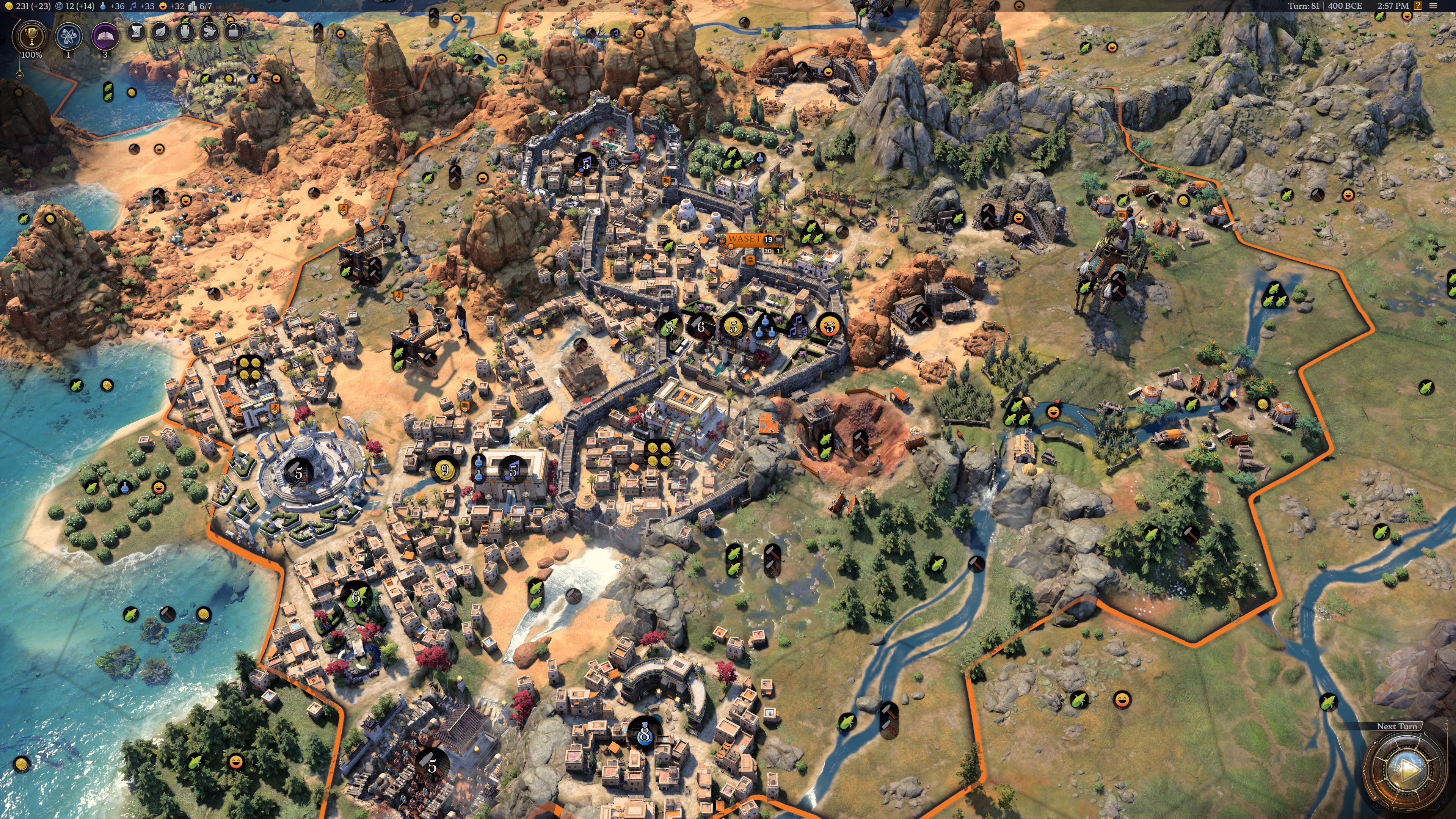
Sprawling cities
The History in Layers mantra of Civilization 7 really shines through the progression of your cities as you advance through the game and build up your city. Builders are no longer a unit in Civilization, nor are the pre-defined districts you could build in Civilization 6. Instead, you will have Rural areas that feature the improvements you make to the nearby city, while Urban districts allow you to build up to two buildings per hex.
Of course, the visuals of the city will change as you plop down these new entities, molding your city into its ultimate vision as you continue to add and build upon it as it spreads outwards. Because my hands-on time only explored the Antiquity age, I didn’t get to see what sort of changes would happen when moving towards a completely different civilization, but I can only imagine it will further enforce History in Layers.
Another big change that I actually found really promising is that you can choose to keep a Town as a Town, rather than progressing it into an actual City. Doing so allows you to give the town a specific specialization, granting it buffs while focusing on a specific task. For example, a Mining Town will get production bonuses while a Farming Town will get bonuses for food production and growth.
You can then use these towns, and the Luxury Resources surrounding them, to funnel back into your city and boost it even further. It’s a unique gameplay loop on expanding which is a big part of Civilization, and I’m excited to see what players who are much better than me end up doing once they’ve gotten a hold of the new system.
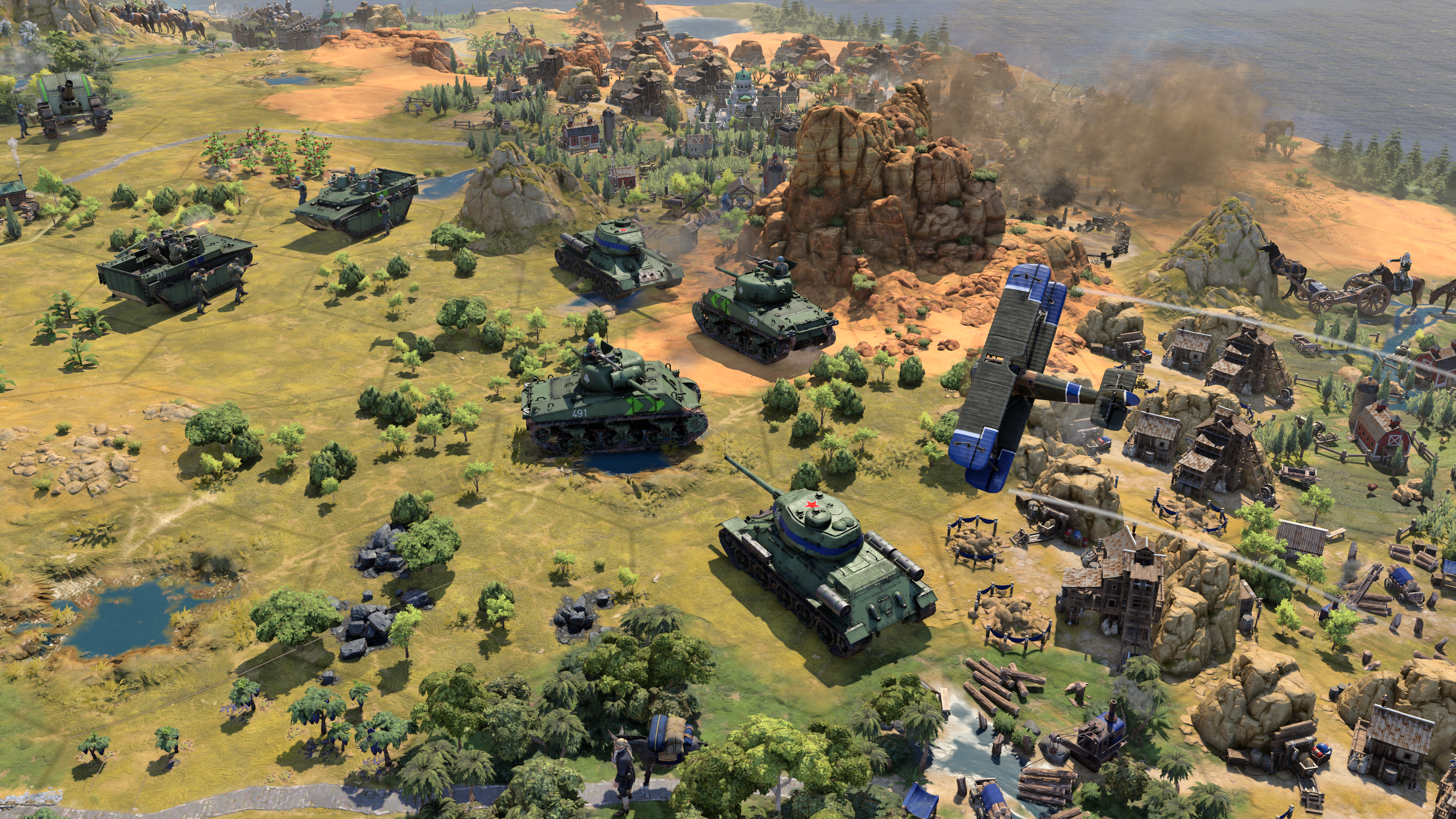
Combat is all about Commanders
Another big change is how Military Leaders, and more importantly experience from combat, work in Civilization 7. In previous entries in the franchise, each unit gained experience after combat. You could then train or purchase various generals that would provide buffs when near certain units, but they would not gain experience.
In Civilization 7, basic combat units no longer get experience. Instead, Commanders gain experience based on the combat performed by units around them. Through experience, they will level up and gain access to buffs that are also then applied to the units around them.
Furthermore, you can link or stack units into a Commander, move them across the battlefield as one single entity, and then deploy the units as necessary on the frontline. It’s actually a massive change to how combat will work in Civilization, and as someone who is a more casual enjoyer of the series, I found the change to be a good one both from a quality-of-life perspective and also in terms of gameplay.
I typically often go more into Culture, Science, or Economics when I play Civilization, simply because I’ve never been a huge fan of the combat. But in the campaign I played, despite choosing an economic culture-favored civilization, I found myself really getting into the combat and for sure would have transitioned towards a military-favored civilization had I reached the next age.
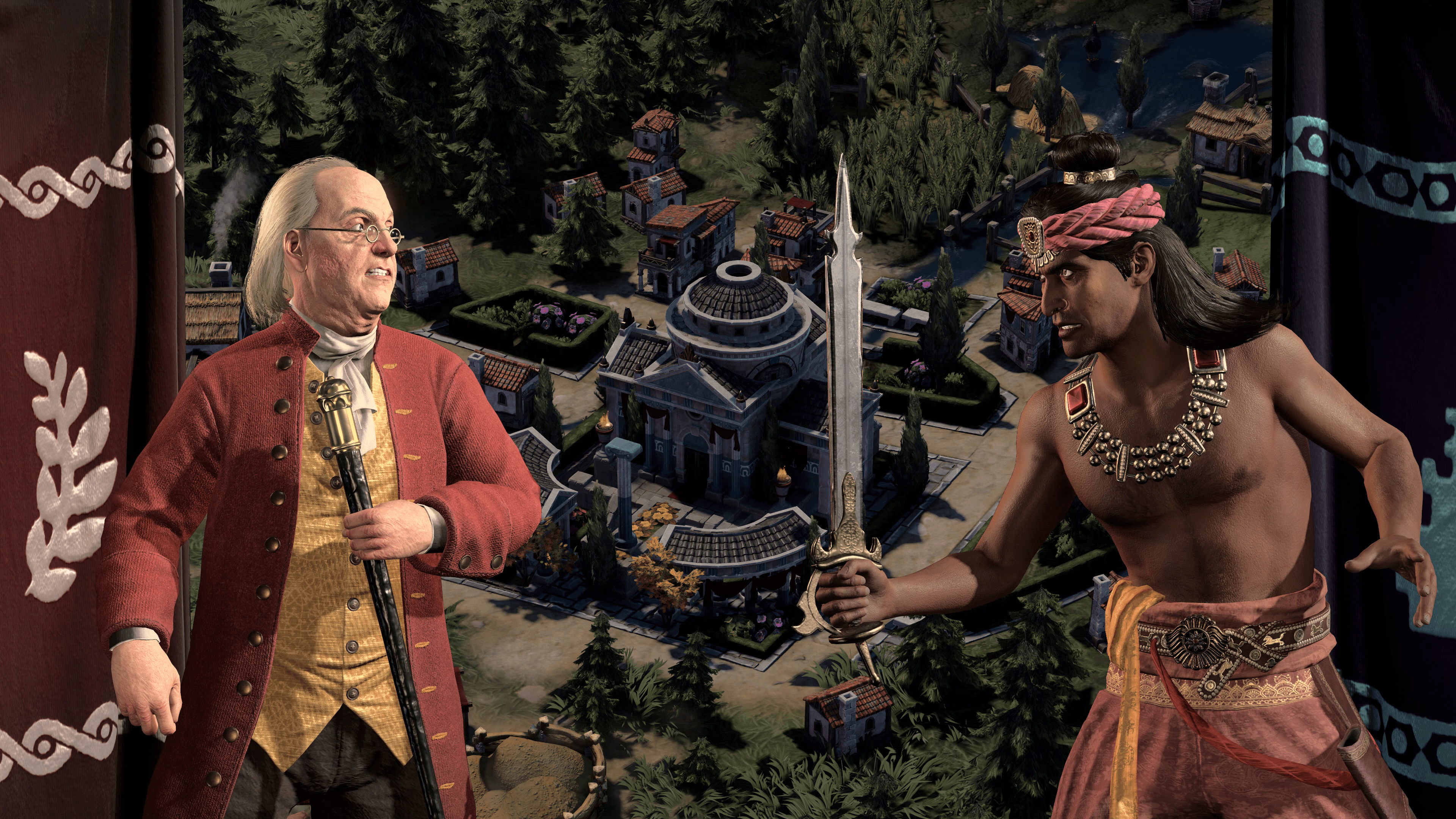
A Promising Step Forward
With a game like Civilization, three hours is certainly not enough time to get a full grasp of the game. In fact, for a casual Civ player like myself, I might have only been halfway or so into the first of the three Ages. But the systems and elements I did get to experience—the new combat experience and Commanders, mixing Civilizations with Leaders, specializing Towns, or turning them into cities—all felt like solid meaningful changes to the Civilization franchise.
In the end, this is still Civilization. The same historical immersion and strategic depth we’ve come to expect from the turn-based strategy game across its many many hexagons are still very much front and center. But instead of just pushing out a prettier Civ game, Firaxis Games seems to be walking the perfect balance of adding new, impactful features and systems while being careful not to disrupt the Civilization formula that many have come to love over the decades. This was certainly a hands-on experience that left me pining for more, and I can’t wait to try some crazy Civilization and Leader combinations to rewrite history in some fun ways.
Sid Meier’s Civilization VII is set to release on February 11, 2025 on PC, Xbox One, Xbox Series X|S, PlayStation 4, PlayStation 5, and Nintendo Switch.
Note: I also had the opportunity to interview a couple of developers from the Civilization 7 team at Firaxis which will be going live tomorrow. I asked some development questions, as well as some fun ones like their favorite leader/civ combos, so keep an eye out for that!
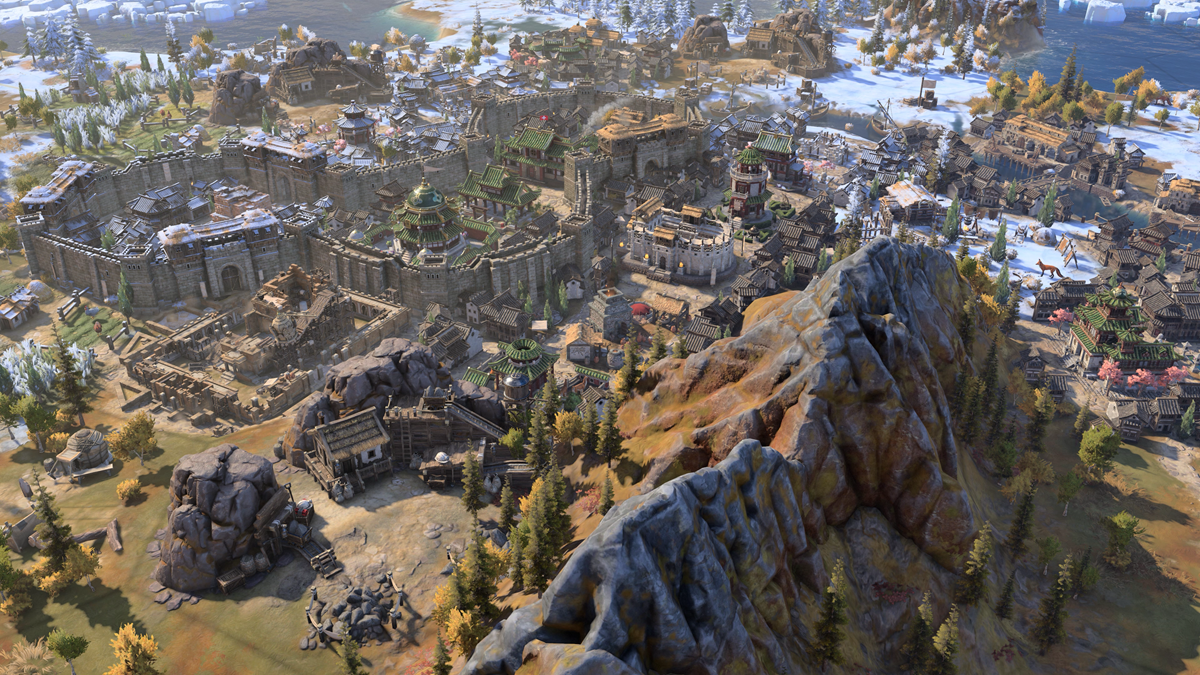

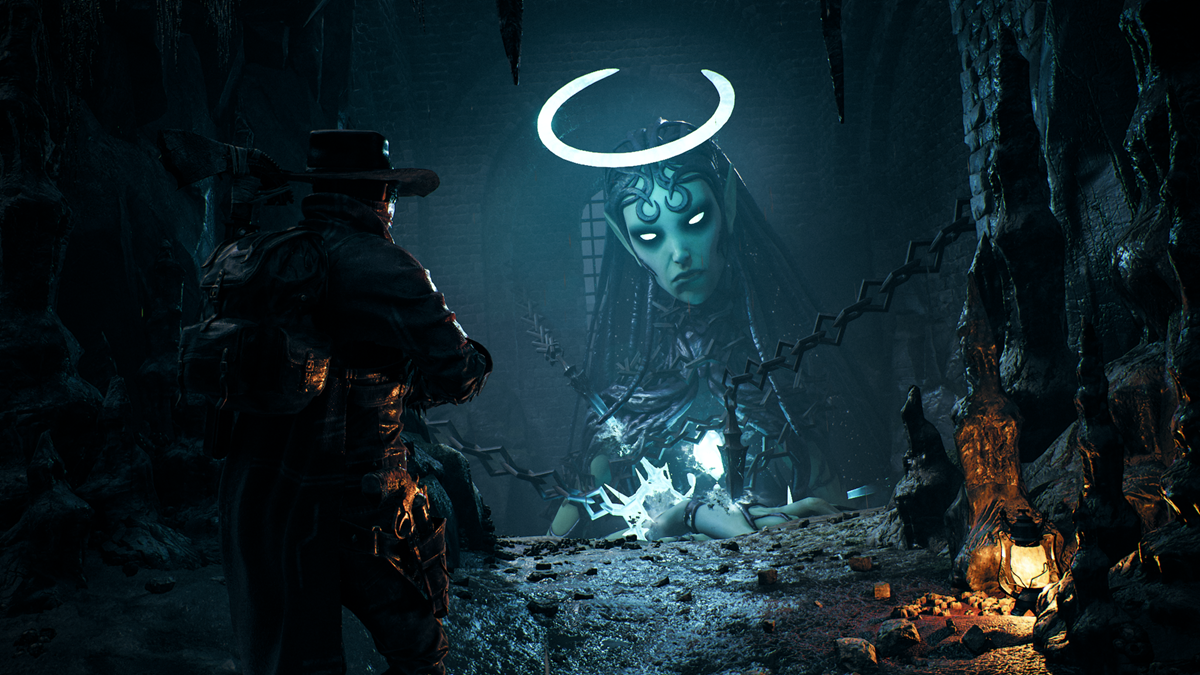
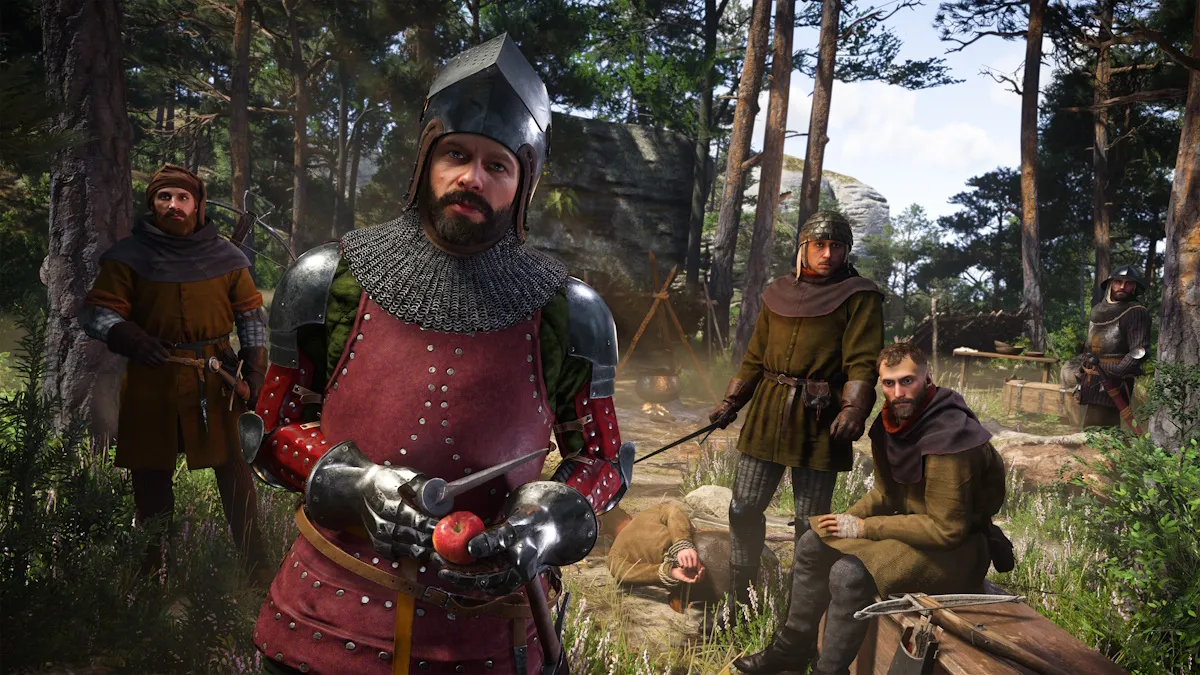
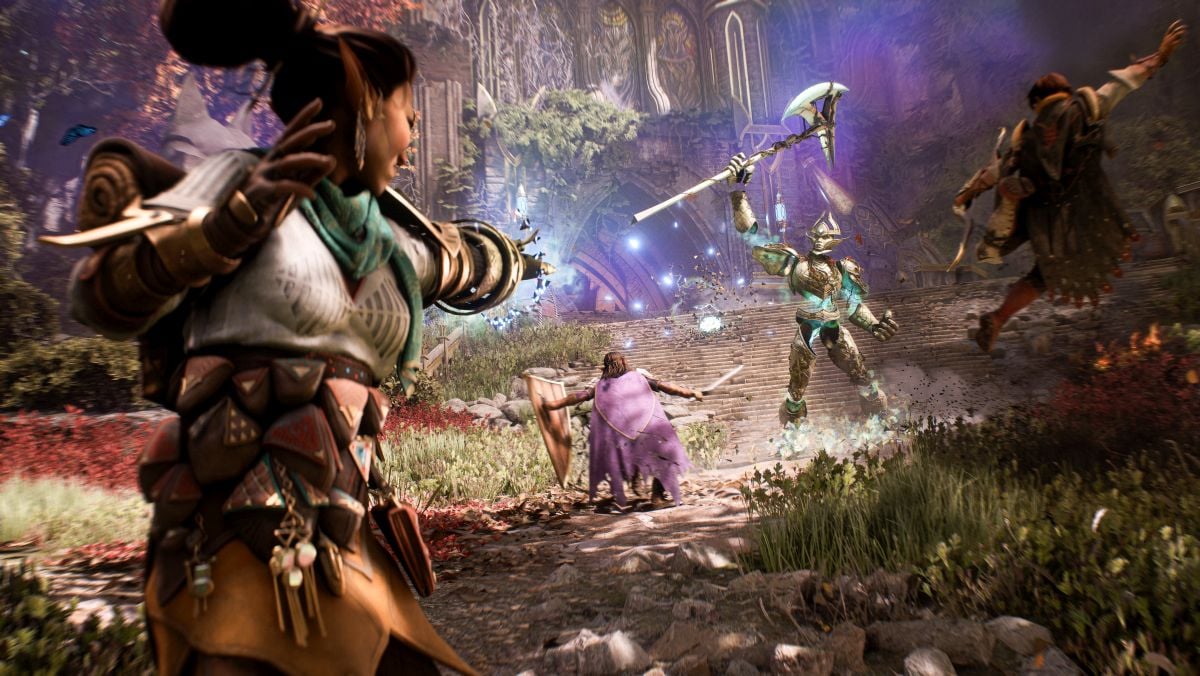

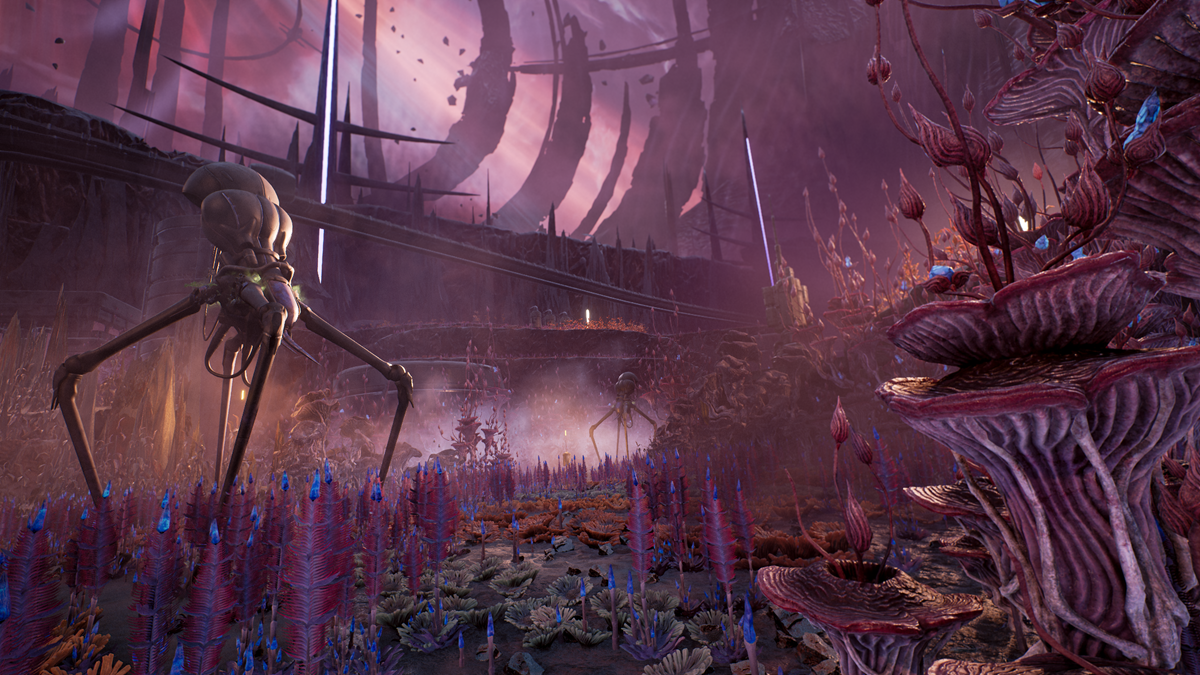
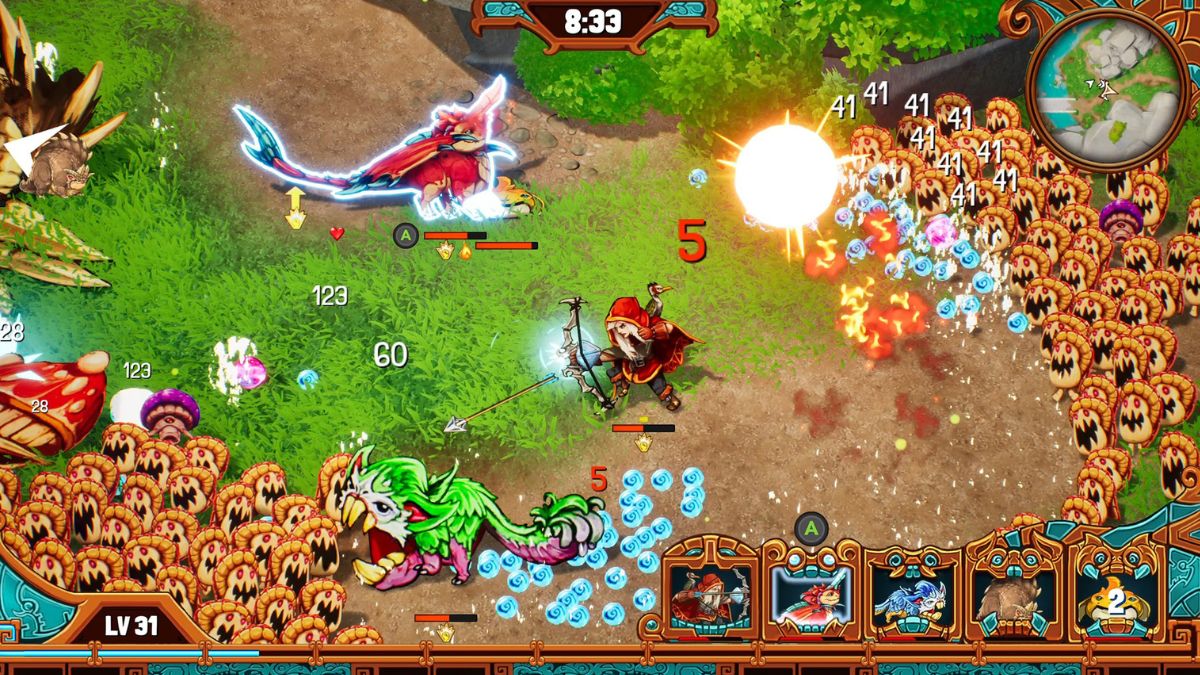
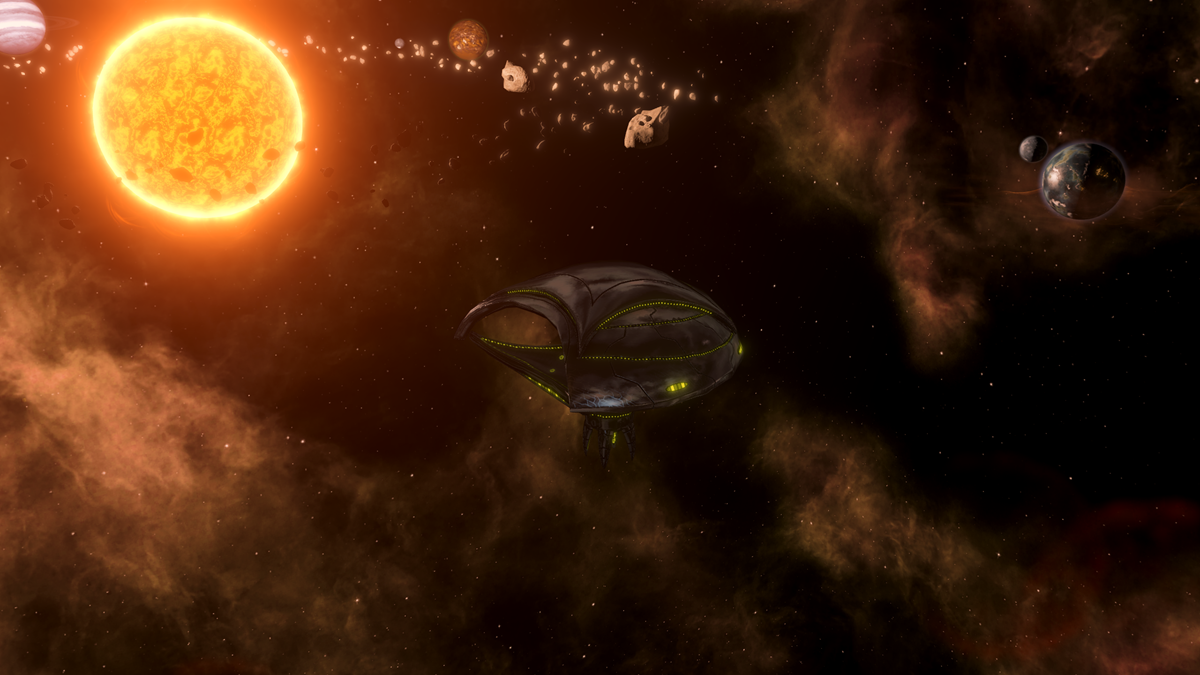
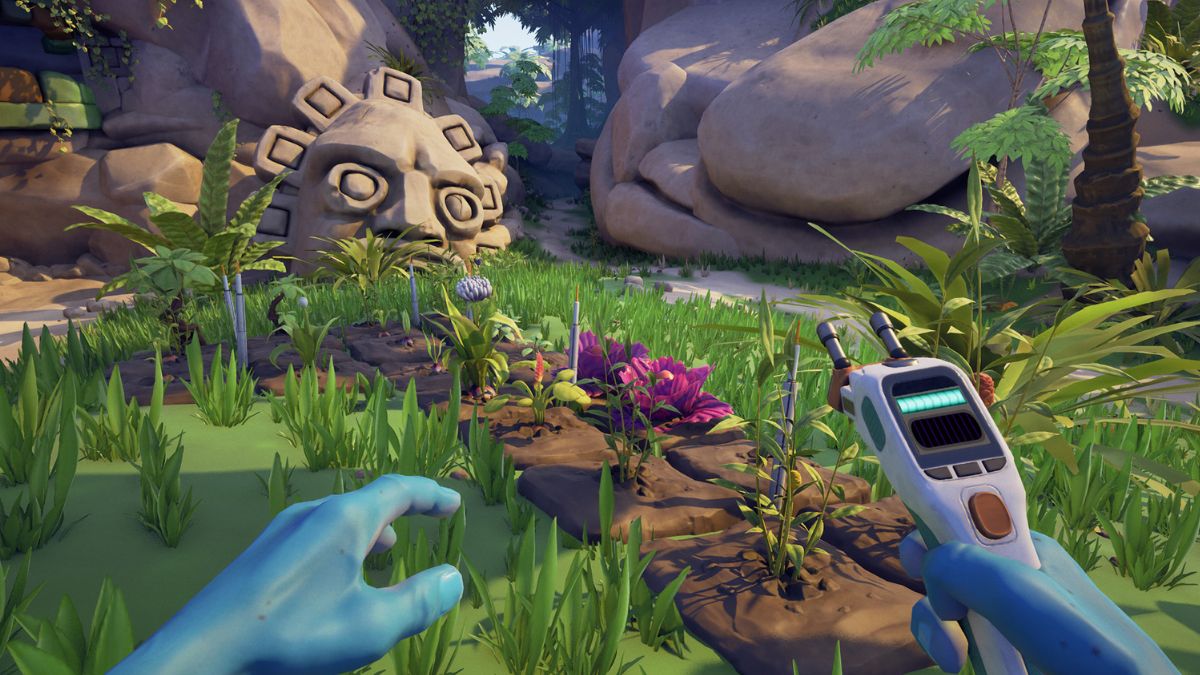

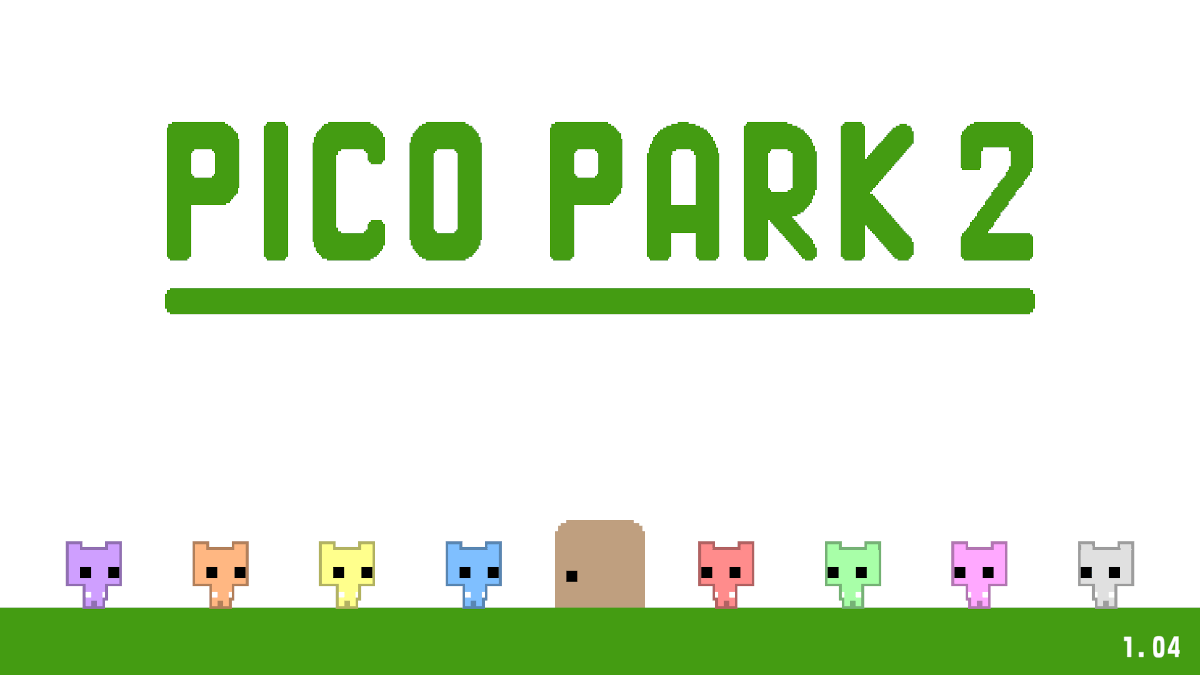
Published: Aug 20, 2024 04:47 pm